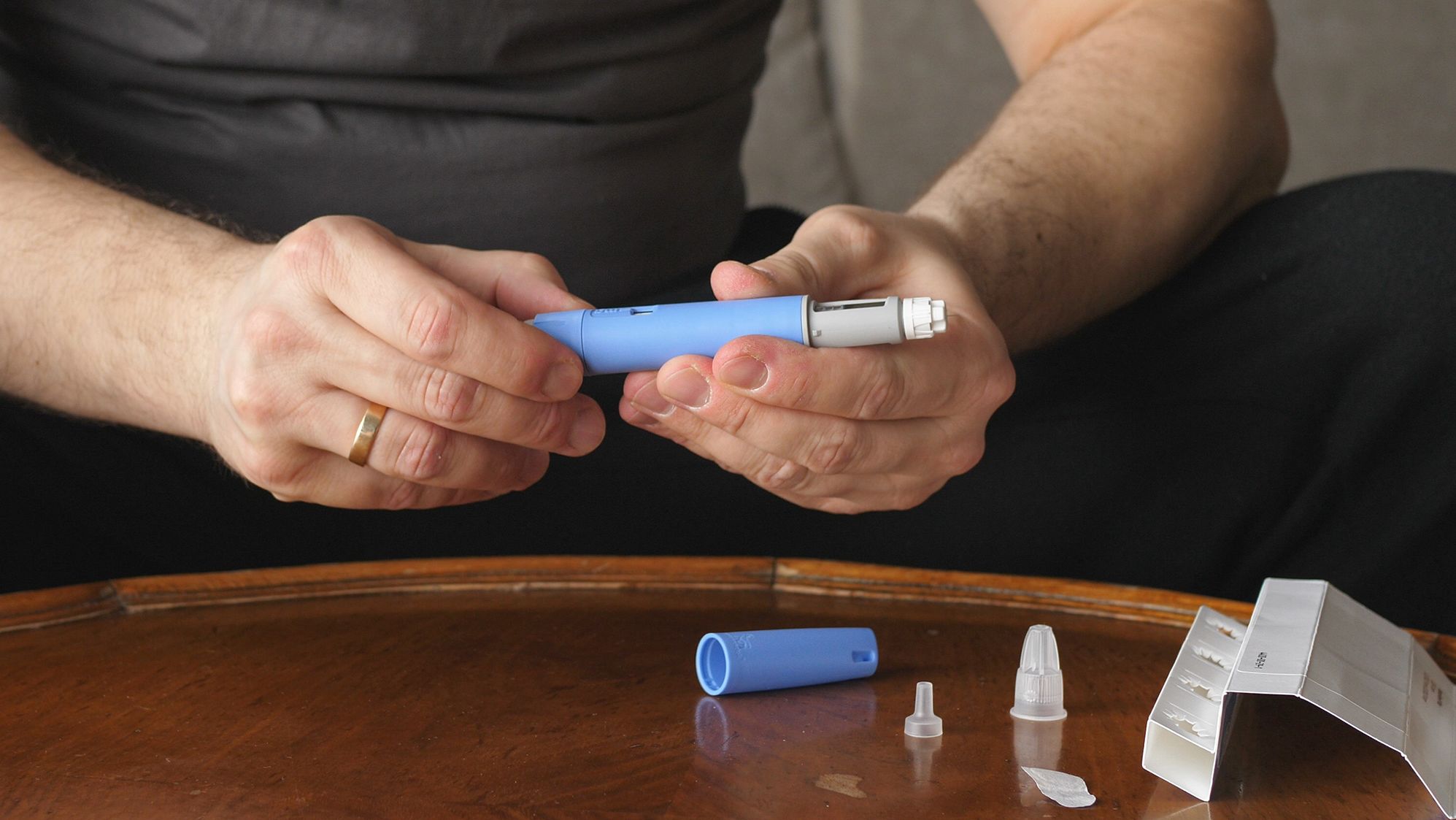Editor’s note: Season 9 of the podcast “Chasing Life With Dr. Sanjay Gupta” explores the intersection between body weight and health. We delve into a variety of topics, including the predicted demise of diet culture and how to talk to kids about weight. You can listen to earlier episodes here.
(CNN) — By now, it is pretty clear that the new weight loss and diabetes medications have achieved blockbuster status.
Semaglutide (sold as Ozempic for diabetes and Wegovy for weight loss) and tirzepatide (sold as Mounjaro for diabetes and Zepbound for weight loss) work by mimicking one or more naturally occurring hormones — including glucagon-like peptide-1 — that operate in several ways: They increase insulin production, slow our digestion (so we feel full longer) and signal the brain to stop eating because we are satiated.
Unlike previous weight loss medications, they are pretty effective at helping people lose weight and keep it off — between around 15% to 20% of body weight — with relatively few side effects (although some people can’t tolerate them, and a fraction of patients experience more severe side effects).
As a result, demand for semaglutide and tirzepatide is high. During the last three months of 2022 alone, US health care providers wrote more than 9 million prescriptions for these and similar medications, according to a report from analytics firm Trilliant Health. The same analysis found quarterly prescriptions ballooned 300% between the start of 2020 and the end of 2022.
Unfortunately, supply has not kept up with the soaring popularity. Some people have resorted to ordering the drugs online or through compounding pharmacies, both of which can be a gamble. In other countries, fake versions have led to hospitalizations.
Drug giants Novo Nordisk (maker of Ozempic and Wegovy) and Eli Lilly (maker of Mounjaro and Zepbound) are scrambling not only to keep up but also to expand manufacturing. The market is only expected to grow: A Goldman Sachs report projected 13% of US adults — roughly 15 million people — might be on one of these medications for weight loss by 2030.

“This is expected to be the largest class of medicines, I think, of all time,” CNN Medical Correspondent Meg Tirrell told her colleague Dr. Sanjay Gupta on his podcast Chasing Life recently. “The projections that I’ve seen are something like $100 billion in annual revenue by 2030 from this class of drugs.”
Tirrell has been reporting on the explosive growth of these medications since before the pandemic. You can listen to more of their conversation below.
With demand high and supply low, you need to keep a few things in mind if you plan to try one of these medications. Tirrell offers these five tips.
Don’t go it alone
These are not medications you want to start on your own.
“It’s important to consult with a trusted health-care provider if you’re considering these medicines — like all prescription drugs, they have powerful effects,” Tirrell said. “A trusted health-care provider can work with you to assess which options are best for you and to monitor safety, efficacy and how well you tolerate the medicines.”
Another bonus, she said, is that your doctor can help ensure you get legitimate versions of these medicines. The US Food and Drug Administration “and the drug manufacturers are warning that compounded versions, which are now being hawked widely online, could contain non-approved ingredients and carry safety risks.”
Prepare for tummy troubles
The most common side effects of these medications are gastrointestinal issues such as nausea, vomiting, diarrhea and constipation.
“These medicines are given by injection and are designed to be started at lower doses and then titrated up over time to help patients adjust to them,” Tirrell said.
Side effects are another reason why it’s important to work closely with your doctor or other health-care provider. “They can help you through this safely,” Tirrell said, “and monitor you for more serious issues, which are rare but have been reported.”
Expect a few roadblocks
Some dosages are in short supply and could be hard to find.
“Novo Nordisk, the maker of Wegovy, has said it’s limiting the lower, starting doses of the medicine so it can ensure people already on the drug can continue to get it,” Tirrell said. “That can make it difficult to find, especially for new patients. Zepbound, the newly approved weight loss drug from Eli Lilly, may be easier to find. But if it’s not possible to find either, again, use caution when considering copycat versions sold online.”
Eli Lilly said recently one compounded product claiming to be its drug was nothing more than sugar alcohol.
“Your doctor’s office may be able to help you locate a pharmacy with the medicines in supply,” Tirrell said. “Otherwise, they could work with you to identify other options.”
Insurance coverage can be difficult
These weight loss medicines cost about $1,000 a month or more out of pocket, and many employers, as well as Medicare, don’t cover them.
“The drug companies sometimes offer financial assistance, but lack of insurance coverage is frustrating for many people,” Tirrell said. “You can check if your insurance covers the medicines by calling the number on your insurance card or insurer’s website, or by checking the plan’s formulary online.”
If your plan doesn’t cover the medicines or requires “prior authorization,” your doctor’s office may be able to help you sort through these issues, Tirrell said.
“Some offices are having to hire extra staff just to handle all that additional paperwork,” she said. “Otherwise, some physicians are prescribing older, generic weight loss medications that can be helpful for some patients.”
These drugs are not right for everyone
For many people, the cultural pressure to look a certain way is high.
“Not everyone who wants these drugs should necessarily be on them, and not everyone who technically qualifies to take them will want to,” Tirrell said. “With medicines for weight loss, physical appearance can get tangled up in external perceptions of health — but whether to take any medicine is a personal decision, made in consultation with a doctor.”
We hope you find these five tips helpful. Listen to the full episode here.
And join us next week on the Chasing Life podcast when we talk to WeightWatchers CEO Sima Sistani about whether these new weight loss drugs really signal the end of diet culture.
CNN Audio’s Jennifer Lai contributed to this report.







